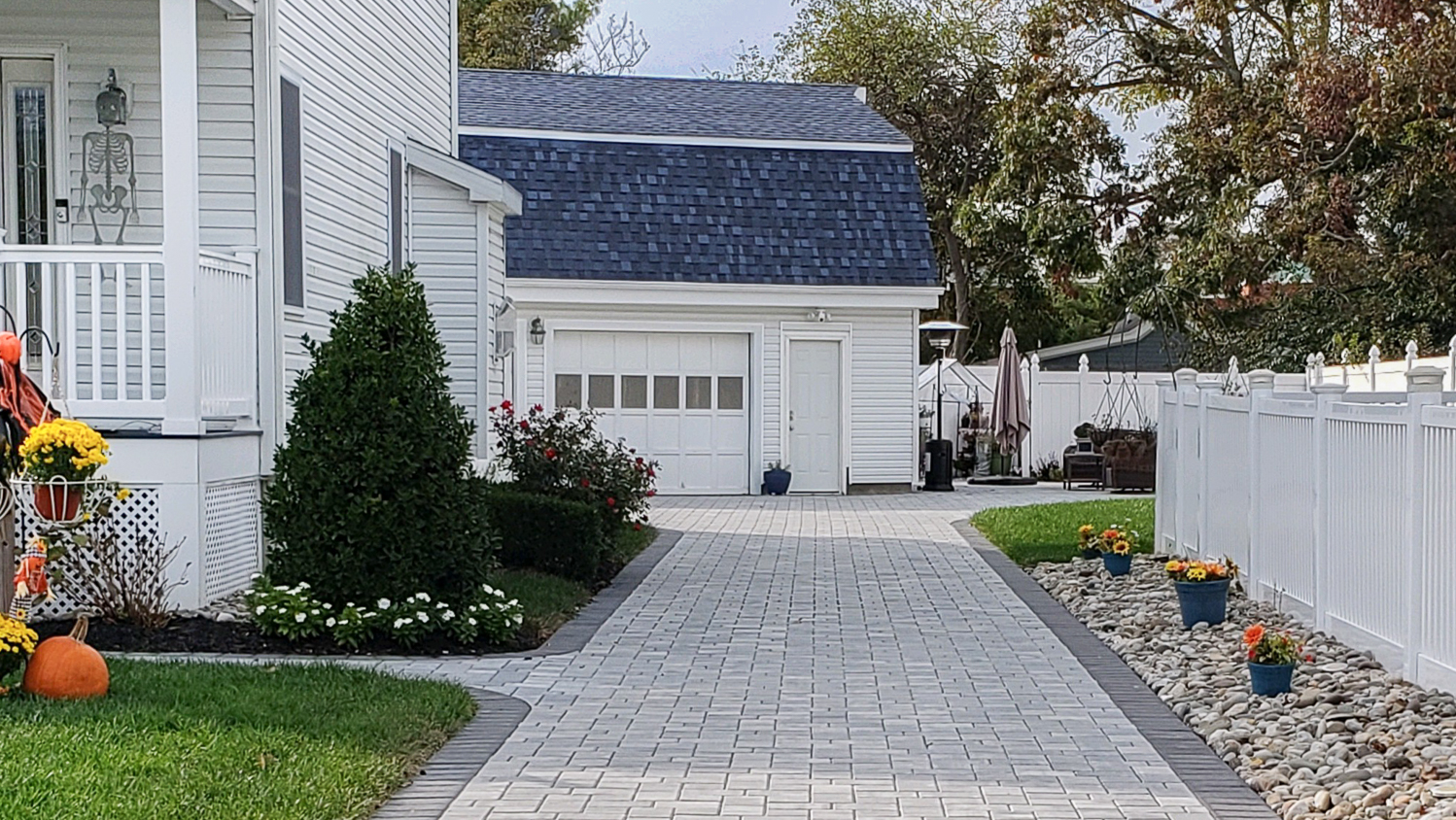
Discover the average paver driveway cost, including price ranges, key cost factors, and tips to help you budget for your driveway project.
Is sealing a driveway worth it? Weigh the pros and cons to find out


Sealing your driveway protects it from damage from the elements and vehicle fluids.
Sealant keeps your driveway looking good and extends its life.
Driveway sealing saves you money in the long run.
However, it costs a lot upfront, and there are a few disadvantages to consider.
As a homeowner, you get a sense of pride looking out over a gleaming, pristine driveway without a single flaw. You're proud of how it adds to the appearance of your home, and you want to keep it looking that way. And that's why you may be considering sealing your driveway. But is it necessary to do this task, and are there any downsides?
Seal-coating a driveway involves applying a liquid product over the pavement so that it fills any cracks and crevices. This prevents the elements from getting into those gaps and causing them to expand and widen, which leads to larger holes and cracks throughout the pavement over time.
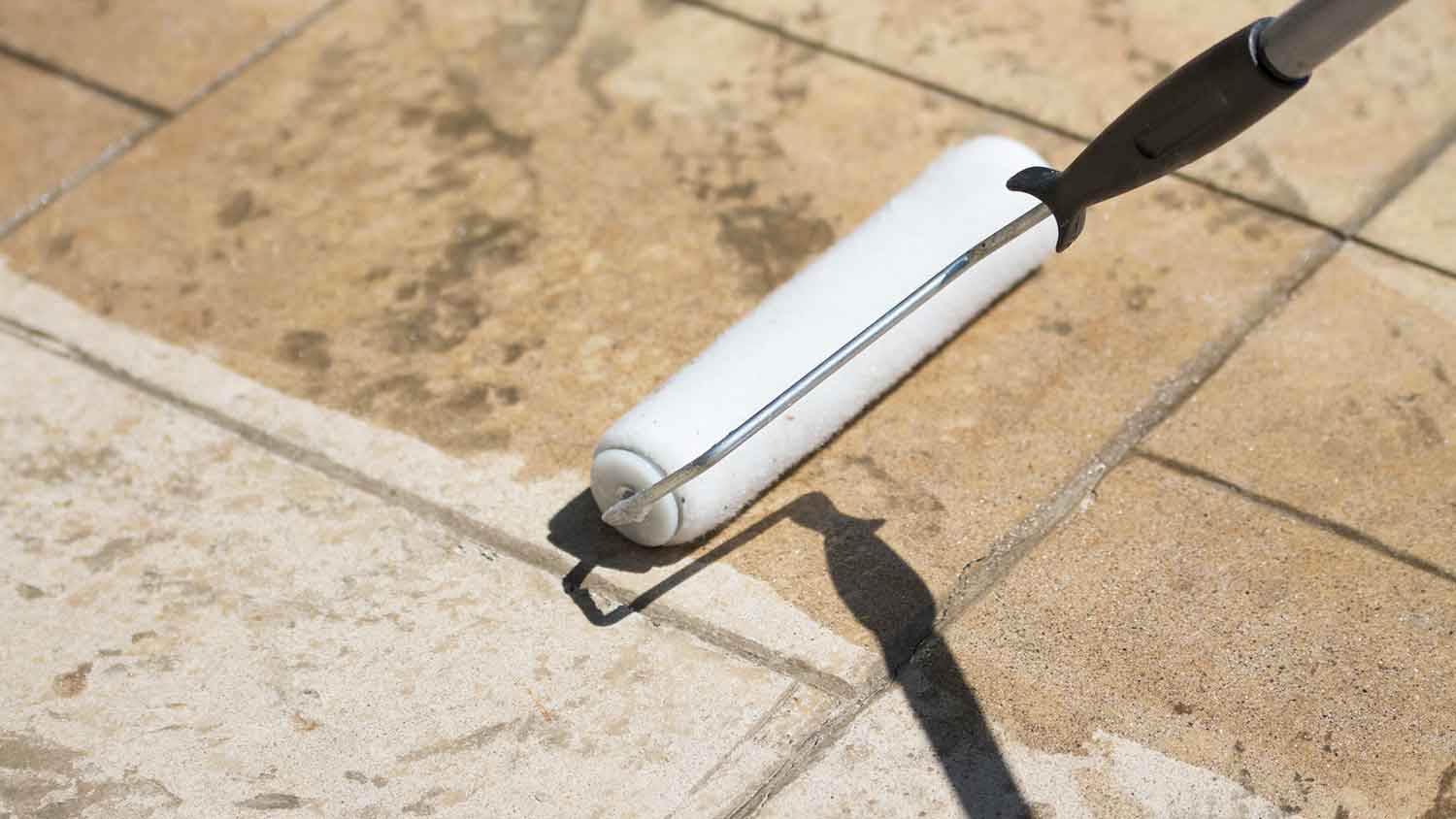
The main advantages of sealing your driveway are obvious, but there are a few others you may not have thought of.
We all have to keep up with the Joneses, and you won't be doing a good job of that if your driveway is all cracked and chipped, will you? In all seriousness, a sealed driveway really ties everything together when it comes to the appearance of your home. And that’s because it protects not only against damage, but also fading.
Original crack sealer dried out and some cracks reappeared. After a follow-up call, crew came out, re-cleaned drive and resealed cracks with partial overall cover for uniform appearance. Paid attention to details and I'll probably have a second coat applied in a few years with a two coat application. Feel confident in their work as performed. If your car leaks oil, fix the leak. They tried treating surface but spots still visible since oil is soaked into asphalt. Neat joint lines at garage and entry stairs. Great Job!
A seal coating will prevent damage to your driveway from UV rays, vehicle fluids, water, and more, which means it will last longer. Replacing a driveway can be expensive, so the longer you can keep your driveway looking great, the better.
The cost to seal an asphalt driveway is as little as $0.06 to $0.38 per square foot. Considering the fact that the cost to replace an asphalt driveway is between $8 and $15 per square foot, that's quite a savings.
It's not the same thing as a heated driveway, but a seal coating will cause ice and snow buildup on your driveway to melt faster. This is good not just because it makes it easier to use your driveway, but also because it prevents long-term exposure to elements that can damage your driveway.
Because of the smooth finish of a sealed driveway, you could clean it by using a broom. Also, because water won't cause damage as easily due to the sealant, you can rinse it with water without being worried about fluid seeping into cracks.
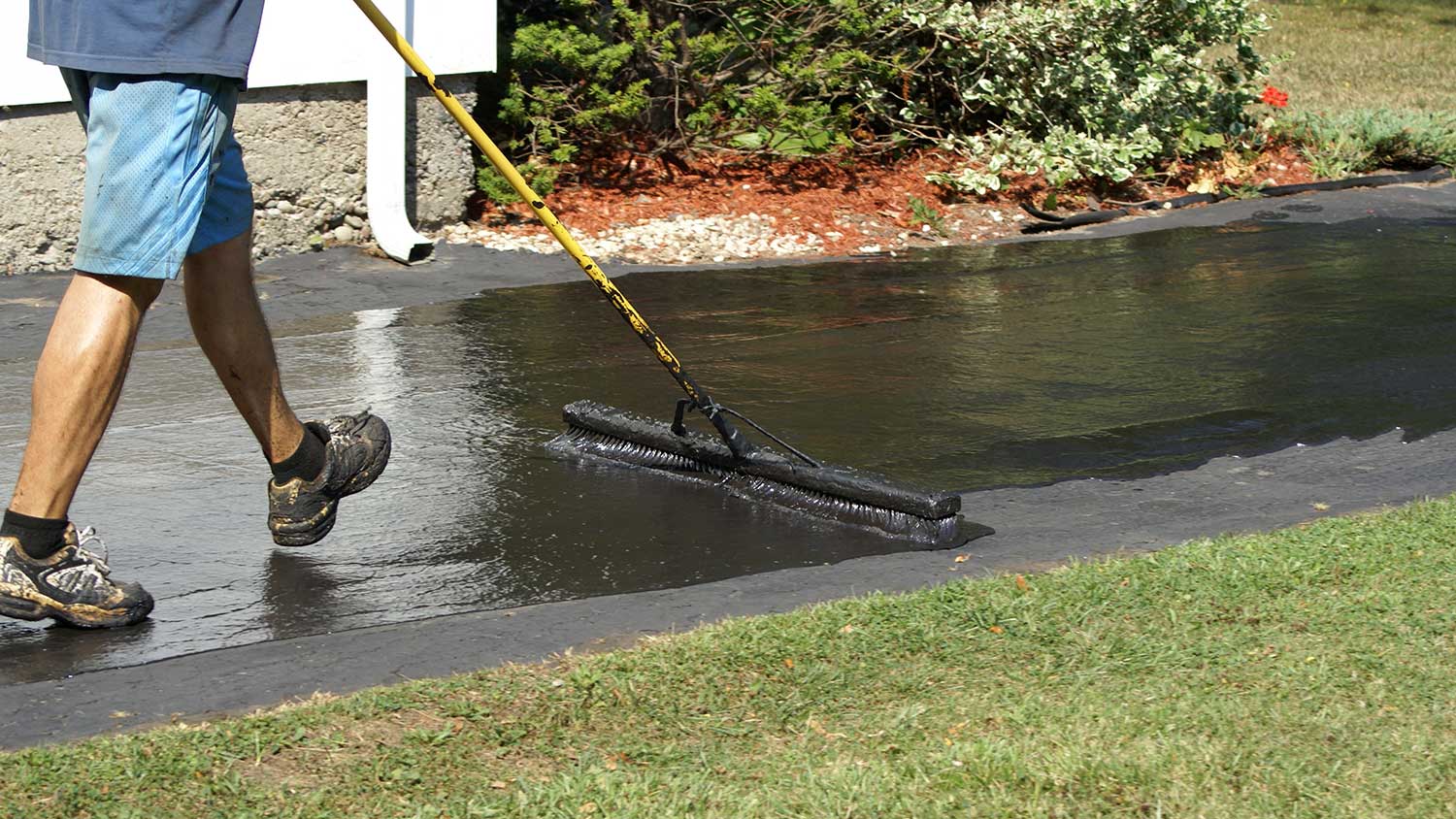
There are plenty of advantages as you can see, but you should be aware of a few reasons not to get your driveway sealed.
It will save you money in the long run, but in the short run, it'll take a bite out of your wallet. The average asphalt driveway sealing cost is between $250 and $700 per 1,000 square feet, and the cost of concrete sealing is $1,500 to cover that much space, so it's not an insignificant sum to pay up front.
Sealant may preserve the life of the driveway, but the life of the seal coating itself may last only one or two years before you need to replace it. At most, you'll get about five years out of a coating.
You should not apply a seal coating during the colder months, because it will affect the performance of the product. There are all-season sealants out there, but they are more expensive.
A seal coating will protect your driveway against most damage, but don't expect it to be perfect. There may still be cracks that form; there will just be fewer of them.
One downside that might surprise you is just how scorching hot the seal coating will make your driveway during the summer months. A sealing job will give your driveway a dark color that will absorb sunlight, so definitely keep your shoes on when walking anywhere near it if the temperature is high.
Spring and summer are generally the best times to seal a driveway. That's because sealing during the colder months may affect the performance of the sealant, and falling leaves during autumn may stick to the sealer while it is wet.
Manufacturers recommend applying a new seal coating on your driveway every two years. However, with proper maintenance, your seal coating may last as long as five years.
On average, sealing a concrete or asphalt driveway costs between $250 and $900. However, the price can go as high as $2,000 for a large driveway. Most contractors charge between $1.25 and $1.50 per square foot for an all-inclusive job that includes labor and products. That means that resealing a common 500-square-foot driveway generally costs between $625 and $750. If you opt to do the job on your own, expect to pay between $0.06 and $0.50 per square foot for materials.
The type of sealant you choose can impact the cost of this project. Representing the upper end, fill-and-seal and eco-friendly sealants cost closer to $0.25 to $0.50 per square foot. At $0.08 to $0.25 per square foot, emulsion, latex, and oil-based sealants represent the budget tier.
You can buy enough sealant to cover a typical driveway for about $100, which makes it tempting to save money by sealing a driveway as a DIY project, but this is a tricky job. You need to ensure the sealant is applied correctly, or you may discover too late that it wasn't, and your driveway is now damaged from the elements.
Instead, consider paying the extra few hundred bucks to have a professional do the job. Contact a driveway coating contractor in your area to get a quote.
From average costs to expert advice, get all the answers you need to get your job done.

Discover the average paver driveway cost, including price ranges, key cost factors, and tips to help you budget for your driveway project.

The average cost to pave a driveway is $4,897, but prices vary by size and material. This guide breaks down common cost factors and helps you budget.

The cost of a tar and chip driveway falls between gravel and asphalt. Is this unique process the happy medium you've been looking for? Let's take a look.

Learn the best time of year to repave or seal your driveway to keep it in optimal condition and protect it against extreme weather and regular wear and tear.
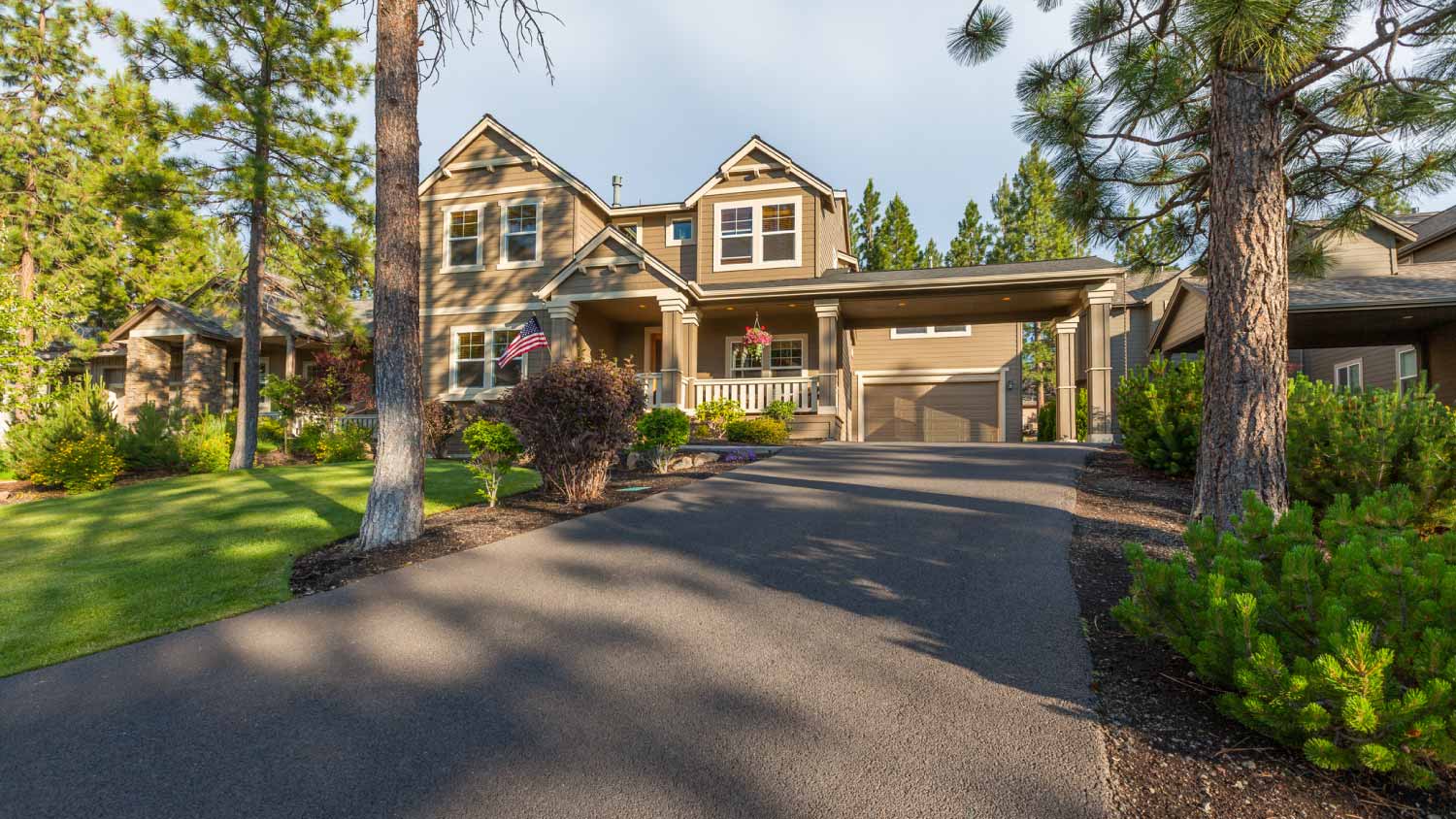
Properly seal an asphalt driveway with a squeegee and asphalt sealer. Start by cleaning the surface, spreading the sealant, and applying a second coat.
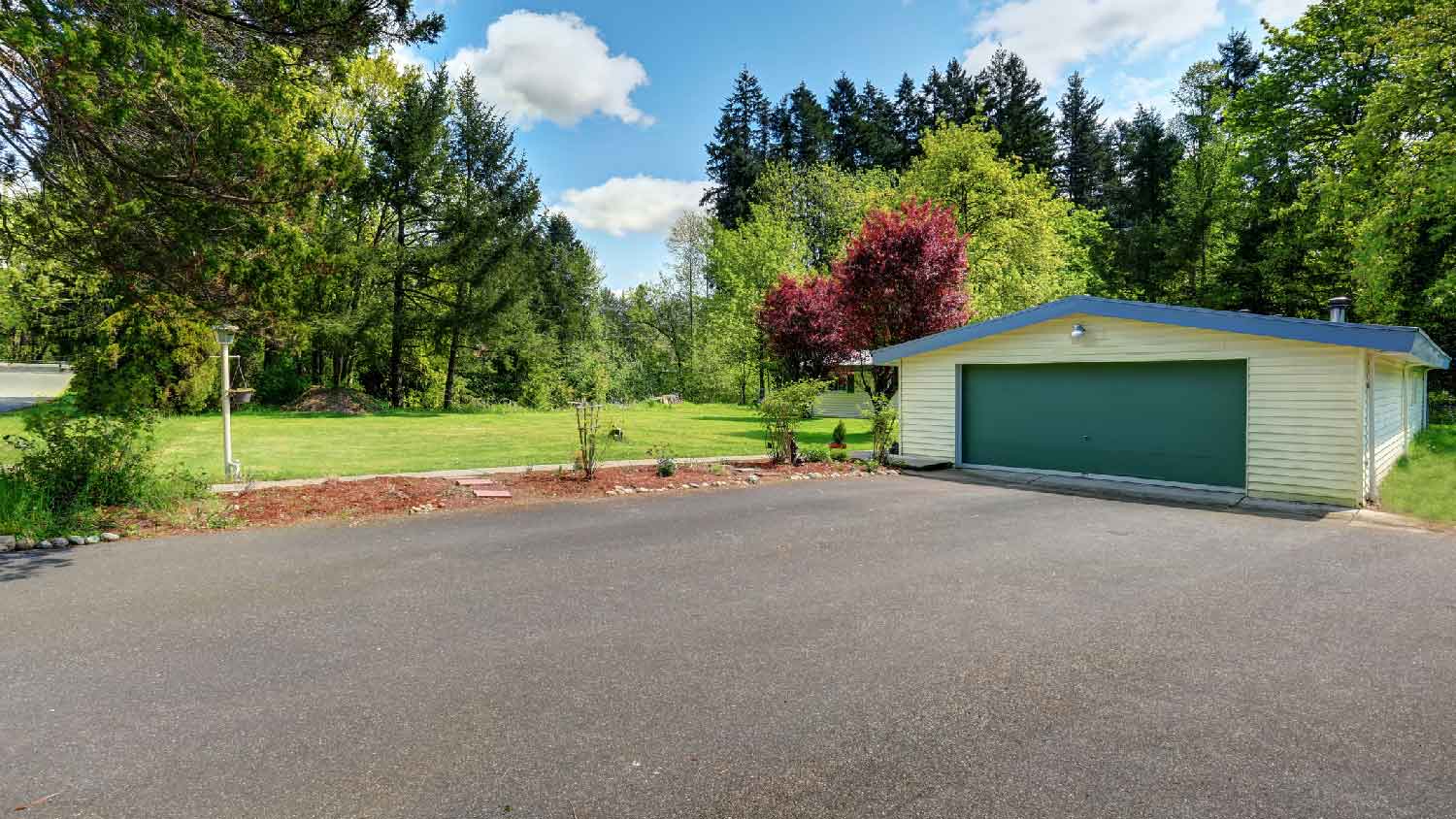
This article reveals the 6 most common types of asphalt cracks, their causes, and the best solutions to prevent further damage.